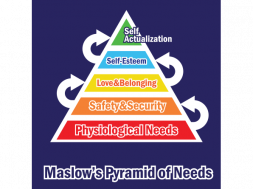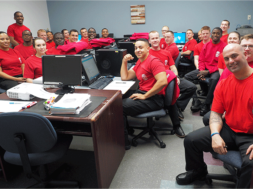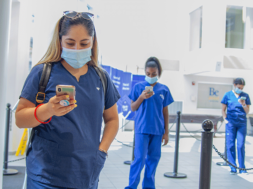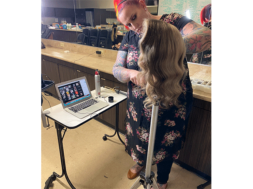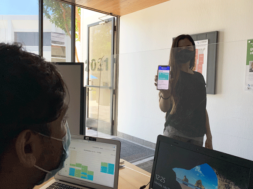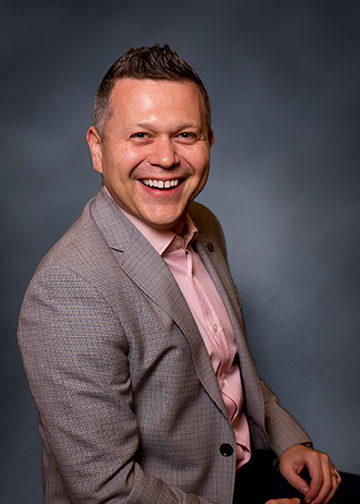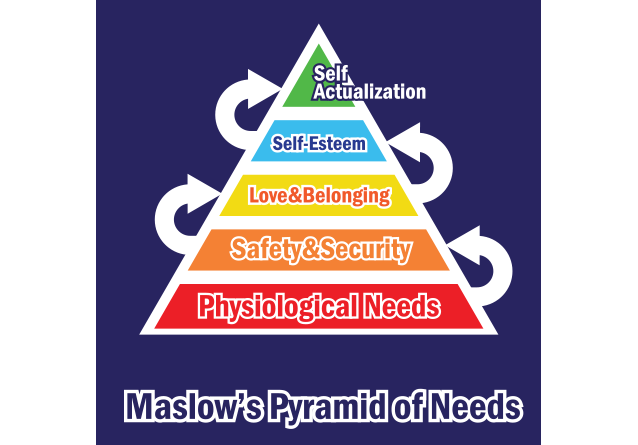
Workforce Alignment and Deliberate Employee Development
By Mikhail Shneyder, President and CEO, Nightingale College
“Why is it that every time I ask for a pair of hands, they come with a brain attached?” – Henry Ford
Mr. Ford’s words precisely capture the dilemma of business, yet for the past hundred years, companies chose to focus on perfecting “assembly lines” and driving outcomes solely through advances in technology and process effectiveness, while willfully disregarding their most precious, albeit fragile and misused, resource – their people. Consequently nowadays, most employees across industries spend inordinate amounts of work time “covering up their weaknesses, managing other people’s impressions of them, showing themselves to their best advantage, playing politics, hiding their inadequacies, hiding their uncertainties, hiding their limitations,” resulting in tremendous negative economic and strategic impacts to their companies (Kegan & Lahey, 2016). Six years ago, when I first took the helm of the organization, Nightingale College was no exception to the norm, experiencing low employee morale, high turnover, and lesser-than-desired outcomes. Even so, I imagined what it could become: a company with a networked, engaged workforce; an institution, whose vision, mission, and values inform the culture and speak to employees’ deep beliefs about the world, while continually satisfying their desire for meaningful contributions, self-management, and personal and professional growth.
Over the following several years, the College’s leadership team, armed with several well-established theoretical frameworks along with a few novel ideas, worked tirelessly to reinvent the company from within and rebuild its organizational frameworks.
While it would be impossible to capture all the intricacies of these transformations within the confines of an article, several major principles of the College’s frameworks are presented below.
In its efforts to reinvent the organization, the College developed an implemented its workforce alignment framework and established deliberate employee development as a central business strategy. In this framework, an employee’s alignment matures along three distinct dimensions: cultural, role, and developmental. Cultural alignment refers to the degree to which employees subscribe to, accept, and model their employer’s vision, mission, and values. Role alignment encompasses the extent to which an employee’s passions and the level of skills and knowledge they possess intersect within the assigned job. We call this convergence “passion skills.” Finally, developmental alignment speaks to an employee’s level of satisfying their needs along the Maslow’s hierarchy of needs, which proposes that all humans have a set of universal needs that must be satisfied in order for an individual to live a fulfilling, meaningful, and happy life. These are grouped into the deficiency (physiological, safety, love and belongingness, and esteem) and the being (self-actualization, transcendence) needs and are explored below in more detail.
At Nightingale College, every new collaborator (employee) is introduced to the company’s alignment and other organizational frameworks at a formalized, weeklong orientation that takes places at the College’s central offices and commences on the first day of employment, without exception. To begin the cultural alignment during the orientation week, the incoming workforce learns about the company’s history, purpose, aspirations, values, culture, common language, day-to-day operations, and communication and technology tools. Moreover, the College clearly communicates its cultural pillars and expectations in employment advertising and throughout the candidate selection process. During the orientation, every new collaborator begins self-reflection on the alignment with the company and is asked to draw personal connections to the College’s vision and mission as well as engage in internalizing the organization’s core values. Cultural alignment development continues beyond orientation and is an ongoing part of the company’s life. From weekly dialogues between individual collaborators and their function leaders, to consistent, explicitly stated use of the cultural frameworks and values in individual and collective decision-making, to the annual companywide collaborator development conference, relentless leadership communication and, most importantly, unyielding top-down modeling of the cultural core allow everyone within the organization to have a sense of common purpose and identity and be stewards of the College’s success.
Cultural alignment, however, does not function in a vacuum: organizations cannot succeed strategically without having the right people in the right jobs, or sound role alignment, at all levels. For every collaborator at Nightingale College, the role alignment lies in the convergence of their technical expertise and their enthusiasm toward performing the duties of the job. Of course, professional knowledge and skills are important for success in fulfilling the responsibilities of any job.
However, these attributes alone cannot sustain productivity and effectiveness in the long term; passion for what one does must always permeate day-to-day duties for ensured success.
The more passion skills an employee utilizes in the execution of everyday responsibilities, the better outcomes they will achieve in the assigned role. In its quest for collaborators’ role alignment, Nightingale College invests in individually-focused professional development as well as personal job matches. The concepts of continual professional development and lifelong learning are widely accepted, and many organizations spend heavily in this arena. For many companies, the downfall of professional development, however, lies in the desire to strengthen individual contributor’s weaknesses, without regard for their passion for the specific skills or knowledge. In the absence of the passion-driven curiosity for the development, any investment in such an endeavor would prove futile.
Conversely, forgetting the fact that humans do not come in job description-sized boxes and no pre-designed role perfectly matches an individual contributor, most organizations do not gauge its employees’ zeal for impact along with their aspirations and, consequently, do not direct resources toward modifying role responsibilities and organizational structures to fully capitalize on and further build each person’s unique set of passion skills. Quite oppositely, many institutions inadvertently create hostile work environments, while driving the culture of excellence, through their focus on punitive rather than developmental methods of performance management. Nightingale College’s approach in this arena is quite unorthodox. The company uses reflection and dialoguing as important tools to solicit collaborators’ self-assessment on the topic of role alignment and strengthen the corresponding outcomes, such as job satisfaction, engagement, and effectiveness. In the context of reflection, collaborators contemplate the degree to which their current level of expertise matches the specific role-required competencies and transparently communicate any perceived deficiencies, along with developmental aspirations, to their function leaders; additionally, they self-assess the alignment of their passion skills with the current or potential roles. Everyone is encouraged to contemplate broadly the College’s strategic and tactical needs and propose role, workflow, and/or organizational structure modifications that would better match collaborators’ passion skills with achieving specific functional or the company’s overall outcomes. This constant organizational fluidity allows Nightingale College to utilize its human resources to the fullest extent while maintaining a safe, learning environment. Another unique aspect of Nightingale College’s role alignment framework is its leadership duties separation model.
Effective performance and organizational behavior management requires leaders to have specifically unique sets of skills. Unfortunately, most people in leadership roles do not possess the requisite expertise to be effective in this realm. Realizing that fact organizations devote significant economic resources to periodic leadership development training, centered on learning about employee motivation and behavior modification. Unfortunately, the effectiveness of these efforts is marginal, at best. Nightingale College utilizes an alternative approach to the problem. Rather than relying on constant management re-training, the company invests in the separation of the functional/technical and behavioral management. Since individuals who elevate to leadership positions usually hold incredible technical expertise, including the ability to effectively solve issues and modify functional systems and processes accordingly, but are short of being professional people managers, these collaborators’ utilization within the organization capitalizes on their passion skills without diffusing time and energy to non-effective undertakings, like trying to affect cultural and developmental alignment attributes of their direct reports. Consequently, these functions are split away from the technical management and allocated to individuals within the College’s organization development team, whose expertise lies in counseling and coaching. The coaches serve as neutral champions of personal elevation and development for everyone in the organization while effectively mediating management conflicts, leadership challenges, and communication shortcomings.
Combined with the other role alignment frameworks, the leadership duties separation model, allows the College to enjoy significantly better collaborator engagement, low turnover, high workforce satisfaction and, consequently, a very well-regarded employment brand.
Beyond the cultural and role alignment, Nightingale College is also committed to the continual humanistic development of its collaborators. According to Abraham Maslow’s widely accepted theory of human needs, a man’s drive to self-actualize, or “the tendency to become actually in what he is potentially: to become everything that one is capable of becoming,” is universal (Maslow, 1943). Per Maslow, self-actualizing individuals display several common characteristics, such as perceiving reality efficiently, tolerating uncertainty, accepting themselves and others for what they are, being problem-centered, rather than self-centered, and concerned for the welfare of humanity, among others (Maslow, 1970). Considering these attributes, it is not difficult to imagine the positive impacts that employing self-actualizing individuals would have on organizations. Research shows, however, that only a very small fraction of the population self-actualizes during a lifetime. Consequently, Dr. Maslow saw a tremendous competitive opportunity for businesses in this realm: “… [P]roper management of the work lives of human beings, of the way in which they earn their living, can improve them and improve the world…” (Maslow, 1998).
Since most people devote a significant portion of their lives to work in order to support themselves and their families, organizations must ensure that employees have ample opportunities to elevate toward self-actualizing, while meeting all lower-level needs along the way. Over the last decade, the focus on human resources personal growth along the Maslow’s hierarchy and other humanistic psychology theories of adult development led a few pioneering companies across different industries to become deliberately developmental organizations (DDO). A DDO is organized around the idea that “organizations will best prosper when they are more deeply aligned with people’s strongest motive, which is to grow” (Kegan & Lahey, 2016). Notably, DDOs intentionally focus on and invest in continual personal development of their people at all levels of the organization and consequently, experience higher levels of employee engagement and satisfaction, very stable workforces, and significantly better business outcomes across the board, as compared to their peers, including greater profitability, better error detection in operational and strategic design, reduction in cost structures and political maneuvering (Kegan & Lahey, 2016). Published in 2016, “An Everyone Culture: Becoming a Deliberately Developmental Organization” takes a closer look at the theories behind and practical applications of the DDO movement in three U.S companies: Next Jump – an e-commerce tech company; The Decurion Corporation – a parent to several operating subsidiaries, including Pacific Theatres, Robertson Properties Group (RPG), ArcLight Cinemas, and Hollybrook Senior Living; and Bridgewater – one of the world’s best-performing hedge funds (Kegan & Lahey, 2016).
Nightingale College is one example of a DDO; its developmental alignment framework follows the Maslow’s human needs hierarchy theory.
In this context, the company’s people development is broadly divided into four categories: health and wellness (basic physiological needs), company environment (safety and security), relationships (love and belonging), achievement and recognition (esteem). In addition to a comprehensive traditional health benefits plans, the College offers its collaborators several opportunities throughout the year to participate in wellness challenges. These are fun, competitive, guided programs that allow anyone within the company to focus on creating awareness and changing behaviors toward health improvement. The latest 3-months-long challenge was based on a New York Times bestseller “Start Here” and focused on elevating emotional wellness. The College is also implementing a voluntary healthcare insurance premium reduction program that would allow collaborators to enjoy higher take-home pay, while demonstrating year-over-year improvements in major health risk indicators such as cholesterol, blood pressure, body mass index, etc.
While the health and wellness aspect of the developmental alignment is fairly straightforward, the programs within the company’s environment and relationships dimensions are far more complex and center on allowing collaborators to function beyond the usual fears present in employment, while identifying with a diverse swath of humanity. Traditional employment structures such as hierarchies, annual performance evaluations, non-transparent communication, and reprimands for mistakes are constant sources of fear and anxiety in the workplace, leading to stifled creativity and severely reduced productivity while leaving no chance for the safety and security needed to elevate toward self-actualizing. While traditional organizational hierarchies are intuitive as well as easy to understand and navigate, they come with incredible inefficiencies in decision-making, deflected accountability, and muddled communication. To avoid these pitfalls, Nightingale College functions as a networked organization, allowing for the most direct communication pathways between any individuals within the company, regardless of their location, functional department, or title. Collaborators are encouraged to make values-congruent, evidence-driven decisions at the points of impact, rather than seeking answers and approvals from above. To further facilitate the networked organizational structure, the company’s continual workforce development efforts always carry elements of increasing collaborators’ awareness of how toxic environments are created within companies and how individuals unwittingly contribute to the problem by making assumptions about others’ intents and failing to seek direct clarifications. The College utilizes the Johari Window as an effective tool for increasing interpersonal awareness and communication throughout the company, thus further building a culture of trust and safety. In his seminal industrial research work, Dr. Maslow described the assumptions for the Enlightened Management Theory. The first on the list was the notion that, if everyone within an organization is fairly evolved and mature, and environmental conditions are favorable, all are to be trusted (Maslow, 1998). Nightingale College’s developmental alignment framework is consistent with this concept and allows for trust to flourish across the company through individual collaborators’ ongoing examination and expansion of their trustworthiness, steeped in the evaluation of personal integrity, intent, capabilities, and results in all actions and behaviors.
In addition to the foregoing, however counterintuitive it may sound, failure is welcomed within Nightingale College, as progress isn’t possible without it.
Of course, failing as quickly and cheaply as possible is preferred, while learning from failure and adjusting the course based on this learning is absolutely required. Additionally, in contrast with the widely utilized performance management mechanisms, the College moved away from annual performance appraisals and performance improvement plans toward continual built-in self-reflection, ongoing dialoguing and feedback, and individualized development plans, all centered in the three prongs of the company’s workforce alignment framework. Not only are leaders expected to continually connect and dialogue with their direct reports in respect to cultural, role, and developmental alignment but collaborators, through weekly, dedicated time allowances, are invited to self-reflect and share their findings on these topics with their function leaders and/or organization coaches. From these reflections and discussions, individualized development plans are born. These plans carry specific “elevate points” and pathways for closer alignment, or steps to continual personal and professional development. It is important to note that the College’s senior leaders share their personal development plans’ elements throughout the organization, model improvements, and explicitly discuss successes and challenges of their personal and professional growth. This sets the tone and the culture of elevating for the entire company. Another unique aspect of the company’s life is the continued dialogue about and use of the essential human core values in all interpersonal relationships: collaborators are continually invited to seek commonalities with others and tame the fears of the ego by focusing on and behaving in a way consistent with love, peace, justice, and kindness principles, among others. Finally, to create a further safety net for the collaborators within the company’s day-to-day life, everyone at the College may take advantage of its generous severance policy to self-select out at any time, should they feel that their individual alignment with the company’s frameworks isn’t possible. This is a very effective tool for keeping people within the company feeling assured and secure while reducing the administrative and organizational burden of weeding out misaligned individuals.
Building esteem through recognition of achievement is another dimension of Nightingale College’s developmental alignment framework. Rather than focusing on the established business metrics in its recognition programs, however, the organization celebrates collaborators’ cultural and developmental alignment. Every day, collaborators are encouraged to notice when others around them exemplify the College’s values and submit “values spotlights” in the performance recognition application, powered by Teamphoria. These submissions are instantly publicized throughout the organization on electronic display screens and personal handheld devices, celebrated in day-to-day meetings and used to award the highest annual honors at the companywide collaborator conferences. Individual strides and breakthroughs in personal and professional development are also recognized through the annual “Elevate” awards. While the external recognition is very important, Dr. Maslow considered self-esteem as the final requisite piece for self-actualizing breakthroughs.
Building self-esteem, conversely, requires utmost levels of personal integrity and can be enhanced through improvements in all elements of an individual’s developmental alignment.
Leading the design and operationalizing of the College’s workforce alignment and deliberate development frameworks has taught me a lot about myself and, undoubtedly, made me a better person. What’s most exciting, though, is many of our collaborators convey to me with much gratitude things like: “I am a different person than I was before,” “I am an evolved human being,” “My family life and external relationships are much stronger,” and “I enjoy my life and am so thankful to be a Nightingale collaborator!” I think for any CEO these words would be as fulfilling as they are for me and all are invited on this journey. Nightingale College’s frameworks only begin to scratch the surface of possibilities of revolutionary advances in organization management, but the outcomes of this journey to date lead me to believe that my company is on the right track. John Naisbitt famously said: “The most exciting breakthroughs of the 21st century will not occur because of technology, but because of an expanding concept of what it means to be human.” I look forward to the future in which the old models have become largely obsolete and the vast majority of organizations have evolved to match the advances of human consciousness.
References:
Kegan R. & Lahey, L.L.; with Miller, M.L., Fleming, A., & Helsing D. (2016). An everyone culture: becoming a deliberately developmental organization. Boston, MA: Harvard Business Review Press.
Maslow, A. H. (1943). A Theory of Human Motivation. Psychological Review, 50(4).
Maslow, A. H. (1970). Motivation and personality. New York: Harper & Row.
Maslow, A. H. (1998). Maslow on management. New York, NY: John Wiley & Sons, Inc. (Original work – Eupsychian management: a journal, 1965, R.D. Irwin)
MIKHAIL SHNEYDER is the President and Chief Executive Officer of Nightingale College, a single-purpose, private institution of higher learning, based in Salt Lake City, Utah, operating in Utah, Idaho, and Wyoming, and dedicated to advancing the quality of and access to education for health care professions. A registered nurse for more than 20 years, Shneyder has a wealth of management experience in post-secondary education for health professions and health care delivery services. He is a published academic author, conference speaker, and guest lecturer, specializing in strategic planning, organizational development, forecasting, and management. Shneyder holds a Master of Business Administration degree from the University of California, Berkeley’s Haas School of Business.
Contact Information: Mikhail Shneyder // President and CEO // Nightingale College // 801-689-2160 // mshneyder@nightingale.edu // www.nightingale.edu // https://www.linkedin.com/in/mikhail-shneyder-b8281a3
